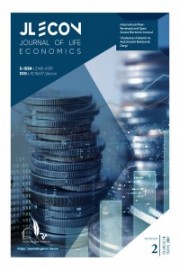Exchange rate response to oil price and political shocks: what can Nigeria do?
Exchange rate response to oil price and political shocks: what can Nigeria do?
Author(s): Adebayo Augustine Kutu, David Alaba Alori, Harold NgalawaSubject(s): National Economy, Energy and Environmental Studies, Economic policy, Post-War period (1950 - 1989), Present Times (2010 - today), Financial Markets
Published by: Rating Academy
Keywords: Exchange Rates; Oil Price Shocks; Political/Institutional Factor; VECM;
Summary/Abstract: This study determines how political institution (factor) and oil prices play a significant role in exchange rate instabilities in Nigeria between 1980:Q1 and 2019:Q4. Employing a VECM model with time series and structural analysis, the study decomposes the oil prices into positive and negative shocks. The findings show a symmetric impact from positive and negative oil shocks while political/ institutional factor, on the contrary, indicates an asymmetric impact on exchange rates. The study, therefore, recommends that strong political institution that promotes good governance, accountability and transparency should be put in place. This will untimely reduce the cost of importation that prevents the country from reaping the benefits of positive oil price shocks. While this study employs one of the unique approaches to the study of exchange rates worldwide, it also provides insights to how institutional/political factor contribute to exchange rate instability in Nigeria.
Journal: Journal of Life Economics
- Issue Year: 8/2021
- Issue No: 2
- Page Range: 237-246
- Page Count: 10
- Language: English

